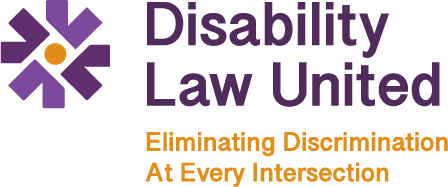Contact: Al Elia, Disability Law United, aelia@dlunited.org, 303-757-7901
July 11, 2024—Nashville, Tennessee—Earlier this week, a federal judge in the Middle District of Tennessee granted partial summary judgment to multiple plaintiffs finding that the Tennessee Department of Correction violated federal law, including the Americans with Disabilities Act and Section 504 of the Rehabilitation Act, by failing to provide sign language interpreters in connection with prison programming, medical appointments, religious services and legal processes such as discipline or parole, and by failing to provide videophones to deaf prisoners.
The case was filed in 2020 on behalf of a number of individual prisoners and Disability Rights Tennessee. Plaintiffs are currently represented by Disability Rights Advocates (“DRA”), Disability Rights Tennessee, Disability Law United, and the Denver-based civil rights firm of Fox & Robertson.
In her opinion, Judge Aleta A. Trauger stated: “The plaintiffs have identified hundreds of high-stakes interactions in which interpreters were not provided, many of which involved situations—such as receiving medical care—in which effective communication is an inherently vital component.” Further, “While there may be room for disputing whether certain specific listed encounters fall within the scope of TDOC’s violations, there is no longer any basis for disputing that such violations generally existed and were manifestations of a continuous, ongoing policy or practice.” Read the judge’s order granting partial summary judgment.
While the decision resolved several of the major claims in the case, the Court will later need to decide the remaining claims, in addition to a remedy for these violations as well as damages for individual plaintiffs. A trial is set for January of 2025. Some individual Plaintiffs and claims were dismissed under this most recent order, largely based on statute of limitations or because the Court found that the individuals had not sufficiently exhausted the prison system’s grievance process.
“The court re-affirmed that when Tennessee takes away the liberty of deaf people, It cannot also take away their right to the effective and professional services and tools they need to communicate with medical providers, educators, chaplains, prison staff, and their friends, family, and others outside of prison. Had Tennessee DOC recognized that incarcerated persons do not lose their fundamental human rights, it would have prevented years of discrimination and denial of access to the health, educational, religious, social, and other rehabilitative programs offered to non-deaf incarcerated people. DLU remains committed to fighting for the right to equal access to programs and services for deaf and hard of hearing people in carceral systems,” said Al Elia, DLU Staff Attorney.
“TDOC’s failure to provide effective communication does not just discriminate against our clients, and all deaf incarcerated people, but deprives them of meaningful human connection, basic health care, and opportunities for rehabilitation while they are serve their sentences. The Court was right to recognize the gravity of TDOC’s failures and to find TDOC in violation of federal disability rights law,” said Madeleine Reichman, Senior Staff Attorney at Disability Rights Advocates.
“The order was a significant victory for deaf prisoners in Tennessee and set precedents on a number of issues that will be of value to all prisoners – deaf and hearing – around the country and to the organizations that work with them,” said Amy Robertson, who is co-lead counsel along with DRA.
# # #
About Disability Law United (DLU): Disability Law United (formerly the Civil Rights Education and Enforcement Center) is a nonprofit legal organization that fights for liberation through the lens of intersectional disability justice with a combination of education, legal advocacy direct services, and impact litigation. DLU’s work includes a focus on addressing effective communication and access for the deaf and hard of hearing and others suffering from unlawful disability based discrimination.
About Fox & Robertson: Fox & Robertson is a law firm based in Denver, Colorado with a practice focused on impact disability rights litigation as well as individual advocacy and education. More information is available at www.foxrob.com.
About Disability Rights Advocates (DRA): With offices in California, New York, and Illinois, Disability Rights Advocates is the leading national nonprofit disability rights legal center. Its mission is to advance equal rights and opportunity for people with all types of disabilities nationwide. DRA represents people with all types of disabilities in complex, system-changing, class action cases. Thanks to DRA’s precedent-setting work, people with disabilities across the country have dramatically improved access to education, health care, employment, transportation, disaster preparedness planning, voting, and housing. For more information, visit www.dralegal.org.
About Disability Rights Tennessee: Disability Rights Tennessee is the Protection & Advocacy (“P&A”) organization designated in the State of Tennessee. Disability Rights Tennessee provides free legal advocacy services to Tennesseans with disabilities and mental health issues across Tennessee, including in the areas of employment discrimination, safety in schools, abuse and neglect, and community resources and services. Disability Rights Tennessee has broad access authority to monitor facilities and to investigate allegations of abuse and neglect. www.DisabilityRightsTN.org.
